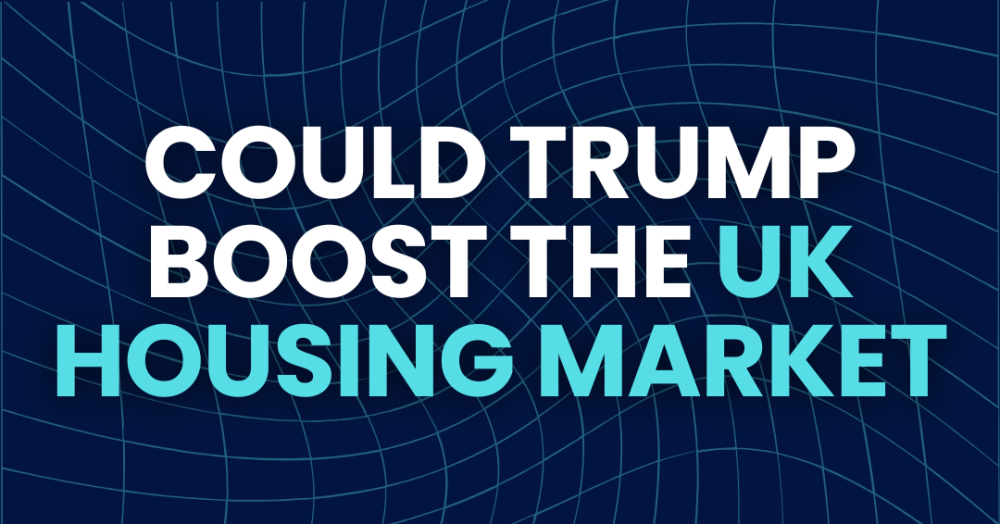When thinking about the factors influencing the UK housing market, Donald Trump’s presidency might not immediately spring to mind. However, the globalised nature of economics means that events across the Atlantic can ripple into British markets. Let's analyse the subtle ways his administration might affect the UK housing market.
1. Economic Policies and Trade Relations
Trump’s presidency was characterised by a protectionist stance, with a focus on renegotiating trade deals to benefit the United States. While the UK and the US share a strong "special relationship," Trump’s America-first policies created uncertainties about future trade agreements. During his tenure, discussions about a UK-US trade deal post-Brexit gained attention, with mixed implications for both economies.
A strong trade deal could encourage greater economic stability and investment in the UK, potentially boosting demand for housing. Conversely, if trade negotiations flounder, it could weigh on investor confidence, leading to reduced interest in the UK property market, particularly from overseas buyers.
2. Impact on Global Markets
Donald Trump’s presidency had a significant impact on global financial markets. His tax cuts and deregulation policies spurred economic growth in the US but also created volatility due to trade wars and geopolitical tensions. For the UK, fluctuations in global markets—often influenced by US policy—can have a knock-on effect on housing prices.
For instance, if Trump-era policies or their aftermath continue to strengthen the US dollar, UK properties may become more attractive to American buyers due to favourable exchange rates. This could particularly impact prime property markets in London, which have historically been a magnet for international investors.
3. Geopolitical Instability and Safe-Haven Demand
One of the more indirect effects of Trump’s presidency is the geopolitical uncertainty it generated. Events such as the US-China trade war and heightened tensions with Iran under his administration contributed to global instability. In such times, UK property has often served as a “safe-haven asset” for wealthy investors, driving up prices in desirable areas.
If Trump’s political influence leads to further instability or polarises US politics to the extent that it impacts global markets, the demand for UK housing from risk-averse international buyers may increase.
4. Immigration Policies and Talent Mobility
Trump’s stricter immigration policies had far-reaching implications. For the UK, tighter US immigration controls may have prompted some international talent to consider relocating to Britain instead of America. A post-Brexit Britain positioning itself as a global hub for talent could benefit from these dynamics, indirectly affecting housing demand in areas with high concentrations of international workers, such as London, Birmingham, and Manchester.
5. Investor Sentiment and Confidence
While Trump himself is not a direct factor in UK housing, the perception of his leadership and policies can influence investor confidence. For example, his criticism of multilateral institutions like NATO or the WTO raised concerns about global economic stability. If these institutions were weakened during his presidency and their efficacy continues to be questioned, it could lead to greater caution among investors, impacting their willingness to put money into assets like UK real estate.
6. Long-Term Effects of Trumpism
Even beyond his presidency, the ideological movement known as “Trumpism” may have long-term effects on global policy, trade, and financial markets. Should his policies or a similar style of governance return in future administrations, the uncertainties could further shape international investment trends, influencing sectors like UK housing.
Final Thoughts
While Donald Trump’s presidency might seem distant from the day-to-day realities of the UK housing market, the interconnectedness of global politics and economics means his influence cannot be entirely ignored. From shaping investor confidence to influencing trade dynamics and even migration patterns, the ripple effects of his administration could have subtle but meaningful impacts on housing prices and demand in the UK. Still unsure whether it's a good time to buy a property? Give us a call on 0121 681 6327.

